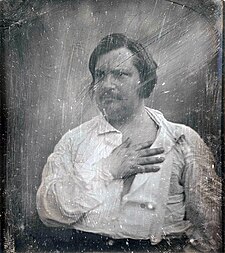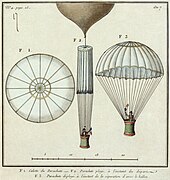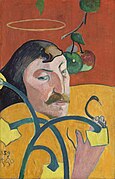Portal:France
| Main Page | Gazetteer |
Welcome to the France Portal!
Bienvenue sur le Portail France !
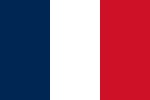
|

|
 | |
France, officially the French Republic, is a country located primarily in Western Europe. It also includes overseas regions and territories in the Americas and the Atlantic, Pacific, and Indian Oceans, giving it one of the largest discontiguous exclusive economic zones in the world. Metropolitan France shares borders with Belgium and Luxembourg to the north, Germany to the northeast, Switzerland to the east, Italy and Monaco to the southeast, Andorra and Spain to the south, and a maritime border with the United Kingdom to the northwest. Its metropolitan area extends from the Rhine to the Atlantic Ocean and from the Mediterranean Sea to the English Channel and the North Sea. Its overseas territories include French Guiana in South America, Saint Pierre and Miquelon in the North Atlantic, the French West Indies, and many islands in Oceania and the Indian Ocean. Its eighteen integral regions (five of which are overseas) span a combined area of 643,801 km2 (248,573 sq mi) and have a total population of 68.4 million . France is a semi-presidential republic with its capital in Paris, the country's largest city and main cultural and commercial centre.
Metropolitan France was settled during the Iron Age by Celtic tribes known as Gauls before Rome annexed the area in 51 BC, leading to a distinct Gallo-Roman culture. In the Early Middle Ages, the Franks formed the Kingdom of Francia, which became the heartland of the Carolingian Empire. The Treaty of Verdun of 843 partitioned the empire, with West Francia evolving into the Kingdom of France. In the High Middle Ages, France was a powerful but decentralized feudal kingdom, but from the mid-14th to the mid-15th centuries, France was plunged into a dynastic conflict with England known as the Hundred Years' War. In the 16th century, the French Renaissance saw culture flourish and a French colonial empire rise. Internally, France was dominated by the conflict with the House of Habsburg and the French Wars of Religion between Catholics and Huguenots. France was successful in the Thirty Years' War and further increased its influence during the reign of Louis XIV.
The French Revolution of 1789 overthrew the Ancien Régime and produced the Declaration of the Rights of Man, which expresses the nation's ideals to this day. France reached its political and military zenith in the early 19th century under Napoleon Bonaparte, subjugating part of continental Europe and establishing the First French Empire. The French Revolutionary and Napoleonic Wars significantly shaped the course of European history. The collapse of the empire initiated a period of relative decline, in which France endured the Bourbon Restoration until the founding of the French Second Republic which was succeeded by the Second French Empire upon Napoleon III's takeover. His empire collapsed during the Franco-Prussian War in 1870. This led to the establishment of the Third French Republic, and subsequent decades saw a period of economic prosperity and cultural and scientific flourishing known as the Belle Époque. France was one of the major participants of World War I, from which it emerged victorious at great human and economic cost. It was among the Allies of World War II, but it surrendered and was occupied by the Axis in 1940. Following its liberation in 1944, the short-lived Fourth Republic was established and later dissolved in the course of the defeat in the Algerian War. The current Fifth Republic was formed in 1958 by Charles de Gaulle. Algeria and most French colonies became independent in the 1960s, with the majority retaining close economic and military ties with France.
France retains its centuries-long status as a global centre of art, science, and philosophy. It hosts the fourth-largest number of UNESCO World Heritage Sites and is the world's leading tourist destination, receiving 100 million foreign visitors in 2023. France is a developed country with a high nominal per capita income globally, and its advanced economy ranks among the largest in the world. It is a great power, being one of the five permanent members of the United Nations Security Council and an official nuclear-weapon state. France is a founding and leading member of the European Union and the eurozone, as well as a member of the Group of Seven, North Atlantic Treaty Organization (NATO), Organisation for Economic Co-operation and Development (OECD), and Francophonie. (Full article...)
Omaha Beach was one of five beach landing sectors of the amphibious assault component of Operation Overlord during the Second World War.
On June 6, 1944, the Allies invaded German-occupied France with the Normandy landings. "Omaha" refers to an 8-kilometer (5 mi) section of the coast of Normandy, France, facing the English Channel, from east of Sainte-Honorine-des-Pertes to west of Vierville-sur-Mer on the right bank of the Douve river estuary. Landings here were necessary to link the British landings to the east at Gold with the American landing to the west at Utah, thus providing a continuous lodgement on the Normandy coast of the Baie de Seine (Bay of the Seine river). Taking Omaha was to be the responsibility of United States Army troops, with sea transport, and a naval bombardment force provided predominantly by the United States Navy and Coast Guard, with contributions from the British, Canadian and Free French navies. (Full article...)Due to his keen observation of detail and unfiltered representation of society, Balzac is regarded as one of the founders of realism in European literature. He is renowned for his multifaceted characters, who are complex, morally ambiguous and fully human. His writing influenced many subsequent novelists such as Marcel Proust, Émile Zola, Charles Dickens, Edgar Allan Poe, Fyodor Dostoyevsky, Gustave Flaubert, Benito Pérez Galdós, Marie Corelli, Henry James, William Faulkner, Jack Kerouac, and Italo Calvino, and philosophers such as Friedrich Engels and Karl Marx. Many of Balzac's works have been made into or have inspired films, and they are a continuing source of inspiration for writers, filmmakers and critics.
An enthusiastic reader and independent thinker as a child, Balzac had trouble adapting to the teaching style of his grammar school. His willful nature caused trouble throughout his life and frustrated his ambitions to succeed in the world of business. When he finished school, Balzac was an apprentice in a law office, but he turned his back on the study of law after wearying of its inhumanity and banal routine. Before and during his career as a writer, he attempted to be a publisher, printer, businessman, critic, and politician; he failed in all of these efforts. La Comédie humaine reflects his real-life difficulties, and includes scenes from his own experience.
Selected fare or cuisine –

Étienne-Marie-Antoine Champion, comte de Nansouty (French pronunciation: [etjɛn maʁi ɑ̃twan ʃɑ̃pjɔ̃ kɔ̃t də nɑ̃suti]; 30 May 1768 – 12 February 1815) was a French cavalry commander during the French Revolutionary Wars who rose to the rank of General of Division in 1803 and subsequently held important military commands during the Napoleonic Wars.
Of noble Burgundian descent, he was a student at the Brienne military school, then was a graduate of the Paris military school. Nansouty began his military career in 1785, as a sub-lieutenant in the regiment Bourgogne-Infanterie, where his father had served during the wars of Louis XV. A cavalry officer at the outbreak of the French Revolutionary Wars in 1792, Nansouty was commissioned as an aide-de-camp to Marshal Nicolas Luckner. During the First Coalition, he saw service as a lieutenant-colonel and squadron commander in the 9th (heavy) Cavalry Regiment, campaigning with the French armies on the Rhine and in Germany. Promoted to colonel in 1793 and given the command of the 9th Cavalry, he was noted for several well-led cavalry actions. Finally made a brigadier general in 1799, after he had refused the promotion several times in the past, Nansouty fought the next year under General Jean Victor Moreau in southern Germany, in a decisive campaign of the Second Coalition. (Full article...)Featured pictures
In the news
- 11 August 2024 – 2024 Summer Olympics
- The 2024 Summer Olympics conclude with the closing ceremony taking place at the Stade de France in Paris, France. (BBC News)
- 10 August 2024 – 2024 Summer Olympics
- In the first-ever men's breakdancing event at the Olympics, Philip "Phil Wizard" Kim of Canada wins the B-Boys gold medal, with Danis "Dany Dann" Civil of France winning the silver and Victor Montalvo of the United States winning the bronze. (CBC News)
- 31 July 2024 – Israel–Hamas war
- A source close to Hezbollah tells AFP that the body of top commander Fuad Shukr has been recovered, nearly 24 hours after he was killed in an Israeli airstrike on southern Beirut, Lebanon. (Al Arabiya) (Reuters)
- 30 July 2024 – Algeria–France relations, Political status of Western Sahara
- Algeria withdraws its ambassador from France after France declared its support for the Western Sahara Autonomy Proposal, which was proposed by Morocco in 2007. (RFI)
Did you know –
- ...that painter Henri-Edmond Cross (self-portrait pictured) changed his name twice, each time to avoid confusion with a similarly named artist?
- ...that André Derain painted Mountains at Collioure alongside Henri Matisse at the fishing port of Collioure?
- ...that according to legend, a spring came up on all three spots where the severed head of Catholic martyr Saint Baudilus bounced after his martyrdom in Nîmes?
Topics
-
Main Category - France, List of basic France topics
- Historic Periods - Prehistoric France - Celtic Gaul - Roman Gaul - Frankish Empire - Medieval France - Early Modern France - Nineteenth century France - Twentieth century France
- Major Events - Hundred Years' War - French Renaissance - Wars of Religion - French Revolution - Franco-Prussian War - Dreyfus Affair - World War I - World War II - Vichy France - Algerian War - Military history
- Dynasties and Regimes - Merovingians - Carolingians - Capetian Dynasty - Valois Dynasty - Bourbon Dynasty - Ancien Régime in France - First Empire - Second Empire - Third Republic - Fourth Republic - Fifth Republic
- Monarchs of France - List of French monarchs - Charlemagne - Louis I the Pious - Charles II the Bald - Louis II the Stammerer - Louis III - Carloman - Charles III the Fat - Eudes (Odo) - Charles III the Simple - Robert I - Raoul (Rudolph) of Burgundy - Louis IV d'outremer - Lothair - Louis V the Indolent - Hugh Capet - Robert II the Pious - Henri I - Philippe I - Louis VI the Fat - Louis VII the Young - Philippe II Augustus - Louis VIII the Lion - Louis IX Saint Louis - Philippe III the Bold - Philippe IV the Fair - Louis X the Quarreller - Jean I the Posthumous - Philippe V the Tall - Charles IV the Fair - Philip VI of Valois - Jean II the Good - Charles V - Charles VI - Charles VII - Louis XI - Charles VIII - Louis XII - François I - Henri II - François II - Charles IX - Henri III - Henri IV - Louis XIII - Louis XIV - Louis XV - Louis XVI - Napoleon I - Napoleon II - Louis XVIII - Charles X - Louis-Philippe - Napoleon III
- Other Major Historical Figures - Catherine de Medicis - Cardinal Richelieu - Mazarin - Jean-Baptiste Colbert - Jacques Necker - Jean Jaurès
- Heads of State of France since 1871 - President of the French Republic
- Third Republic: Adolphe Thiers • Patrice MacMahon, duc de Magenta • Jules Grévy • Marie François Sadi Carnot • Jean Casimir-Perier • Félix Faure • Émile Loubet • Armand Fallières • Raymond Poincaré • Paul Deschanel • Alexandre Millerand • Gaston Doumergue • Paul Doumer • Albert Lebrun
- Vichy France: Philippe Pétain
- Free France: Charles de Gaulle
- Provisional Government: Charles de Gaulle • Félix Gouin • Georges Bidault • Léon Blum
- Fourth Republic: Vincent Auriol • René Coty
- Fifth Republic: Charles de Gaulle • Georges Pompidou • Valéry Giscard d'Estaing • François Mitterrand • Jacques Chirac • Nicolas Sarkozy • François Hollande • Emmanuel Macron
- Heads of Government of France since 1871 - Prime Minister of France
- Third Republic: Dufaure • de Broglie • de Cissey • Buffet • Dufaure • Simon • de Broglie • de Rochebouët • Dufaure • Waddington • de Freycinet • Ferry • Gambetta • de Freycinet • Duclerc • Fallières • Ferry • Brisson • de Freycinet • Goblet • Rouvier • Tirard • Floquet • Tirard • de Freycinet • Loubet • Ribot • Dupuy • Casimir-Perier • Dupuy • Ribot • Bourgeois • Méline • Brisson • Dupuy • Waldeck-Rousseau • Combes • Rouvier • Sarrien • Clemenceau • Briand • Monis • Caillaux • Poincaré • Briand • Barthou • Doumergue • Ribot • Viviani • Briand • Ribot • Painlevé • Clemenceau • Millerand • Leygues • Briand • Poincaré • François-Marsal • Herriot • Painlevé • Briand • Herriot • Poincaré • Briand • Tardieu • Chautemps • Tardieu • Steeg • Laval • Tardieu • Herriot • Paul-Boncour • Daladier • Sarraut • Chautemps • Daladier • Doumergue • Flandin • Bouisson • Laval • Sarraut • Blum • Chautemps • Blum • Daladier • Reynaud • Pétain
- Vichy France: Pétain • Laval
- Provisional Government: de Gaulle • Gouin • Bidault • Blum
- Fourth Republic: Ramadier • Schuman • Marie • Schuman • Queuille • Bidault • Queuille • Pleven • Queuille • Pleven • Faure • Pinay • Mayer • Laniel • Mendès-France • Faure • Mollet • Bourgès-Maunoury • Gaillard • Pflimlin • de Gaulle
- Fifth Republic: Debré • Pompidou • Couve de Murville • Chaban-Delmas • Messmer • Chirac • Barre • Mauroy • Fabius • Chirac • Rocard • Cresson • Bérégovoy • Balladur • Juppé • Jospin • Raffarin • de Villepin • Fillon • Ayrault • Valls • Cazeneuve • Philippe • Castex
- Third Republic: Dufaure • de Broglie • de Cissey • Buffet • Dufaure • Simon • de Broglie • de Rochebouët • Dufaure • Waddington • de Freycinet • Ferry • Gambetta • de Freycinet • Duclerc • Fallières • Ferry • Brisson • de Freycinet • Goblet • Rouvier • Tirard • Floquet • Tirard • de Freycinet • Loubet • Ribot • Dupuy • Casimir-Perier • Dupuy • Ribot • Bourgeois • Méline • Brisson • Dupuy • Waldeck-Rousseau • Combes • Rouvier • Sarrien • Clemenceau • Briand • Monis • Caillaux • Poincaré • Briand • Barthou • Doumergue • Ribot • Viviani • Briand • Ribot • Painlevé • Clemenceau • Millerand • Leygues • Briand • Poincaré • François-Marsal • Herriot • Painlevé • Briand • Herriot • Poincaré • Briand • Tardieu • Chautemps • Tardieu • Steeg • Laval • Tardieu • Herriot • Paul-Boncour • Daladier • Sarraut • Chautemps • Daladier • Doumergue • Flandin • Bouisson • Laval • Sarraut • Blum • Chautemps • Blum • Daladier • Reynaud • Pétain
- Historic periods: French Renaissance - French Baroque and Classicism - French Rococo and Neoclassicism - French art of the 19th century - French art of the 20th century
- Artistic Schools: Impressionism - Cubism - Surrealism
- Art museums and galleries: Louvre - Palace of Versailles - Musée d'Orsay - Centre Georges Pompidou - Musée Picasso - Musée Rodin
- Historic periods: Medieval French literature - French Renaissance literature - French literature of the 17th century - French literature of the 18th century - French literature of the 19th century - French literature of the 20th century
- Football (Soccer): French football clubs - French footballers - Football in France
- Rugby (union): Clubs in France - French rugbymen - Rugby union in France
- Tennis: French Open
- Cycling: Tour de France
- Motorsport: 24 Hours of Le Mans - French Grand Prix
- Ski resorts: Chamonix - Tignes - Val Thorens - Les Trois Vallées - La Plagne - Les Arcs - Courchevel - Méribel - Val d'Isère - Les Deux Alpes - Megève
History of France - History of France
Culture and People - Culture of France - Culture of France - Museums in France - French people - Health in France - Education in France - Education in France - Religion in France - Languages of France - Languages of France - French language - French cuisine - French cuisine - French wine - Archaeology of France - Basque culture - Culture of Brittany
Politics and Government - Government of France - Government of France - French National Assembly - French Senate - Law of France - French politics - Politics of France - Military of France - Foreign relations of France - Flags of France
Economy, Industry and Media - Economy of France - Economy of France - Economic history of France - French businesspeople - Companies of France - French trade unions - Communications in France - Mass media in France - French space program - French airlines
Visual and Plastic Arts - French art - French artists - French architecture - French art
Literature - French literature - French writers - French literature - French poetry
Music - French music - French composers - French musicians - Music of France - French folk music - French rock - French hip hop and rap
Cinema - Cinema of France - Cinema of France - French actors - French film directors - French film producers - César Award winners - Cannes Film Festival
Theater - French theatre - French dramatists and playwrights - Theatres in France - Avignon Festival - Comédie française
Sports- Sport in France - French sportspeople - France at the Olympics -
Geographic topics
-
Main Category - France
- Coastlines: Atlantic Ocean - Bay of Biscay ("Golfe de Gascogne") – Mediterranean Sea (Golfe du Lion) - Côte d'Azur ("French Riviera") – English Channel
- Islands: Belle Île – Corsica – Île d'Oléron – Ouessant – Île de Ré – Île d'Yeu - Réunion - Martinique - Guadeloupe - Saint Barthélemy - Saint Martin - Saint Pierre and Miquelon
- Rivers and streams:
- Major rivers: Loire – Rhine – Rhône – Seine – Garonne - Gironde estuary - Dordogne – Meuse – Escaut – Saône – Marne – Moselle
- Other rivers: Adour – Charente - Aulne – Blavet – Erdre – Hérault – Odet – Orb – Orne – Rance – Sèvre Nantaise – Sèvre Niortaise – Var - Aisne – Allier – Ariège – Aube – Cher – Doubs – Durance – Indre – Ill – Isère – Lot – Maine – Mayenne – Meurthe – Oise - Somme - Tarn – Verdon – Vienne – Vire – Yonne
- Canals: Canal du Midi – Canal de Nantes à Brest – Canal Saint-Martin – Briare Canal – Canal of Burgundy – Grand Canal d'Alsace – Sambre–Oise Canal
- Lakes: Lake Annecy – Lac du Bourget – Lake Geneva (Lac Léman) – Étang de Thau – Étang de Berre
- Mountains:
- Major Mountain ranges: Alps – French Prealps – Pyrénées – Massif Central – Jura – Vosges
- Other Mountain ranges: Aravis Range – Bauges – Belledonne – Chartreuse Mountains – Massif des Écrins – Vercors
- Mountain peaks: Mont Blanc – Aiguille du Midi – Barre des Écrins – Ballon d'Alsace – Crêt de la Neige – Grandes Jorasses – Meije – Mont Aigoual – Mont Ventoux – Pic du Midi - Mont Pelvoux – Puy de Dôme – Puy de Sancy
- Forests: Forest of Fontainebleau – Forest of Compiègne – Paimpont forest – Forest of Saint-Germain-en-Laye
- National parks and natural regions: Cévennes National Park – Écrins National Park – Mercantour National Park – Port-Cros National Park – Pyrénées National Park – Vanoise National Park – Boulonnais – Bresse – Beaujolais – Camargue – Pays de Bray – Sundgau – Vexin
- Major cities: Paris (Paris) – Marseille – Lyon – Lille – Toulouse – Nice – Nantes – Strasbourg – Montpellier – Bordeaux – Rennes – Douai – Le Havre – Reims – Lens – Saint-Étienne – Toulon – Grenoble – Angers – Brest – Le Mans – Dijon – Clermont-Ferrand – Aix-en-Provence – Amiens – Nîmes – Tours – Limoges – Metz – Besançon – Caen – Orléans - Mulhouse – Perpignan - Boulogne-Billancourt – Rouen – Dunkirk – Nancy – Villeneuve-d'Ascq – Saint-Denis, Réunion
- Other: Gardens in France - Cemeteries in France - Transport in France - Tourism in France - Nature conservation in France
- Ski resorts: Chamonix - Tignes - Val Thorens - Les Trois Vallées - La Plagne - Les Arcs - Courchevel - Méribel - Val-d'Isère - Les Deux Alpes - Megève
Geography - Geography of France - Geography of France - Regions of France - Provinces of France - Subdivisions of France - Subdivisions of France - Overseas France

Categories
Related portals
Things you can do
French Wikipedia
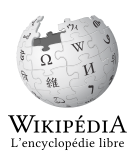 |
There is a French version of Wikipedia, the free encyclopedia. |
Wikiproject
Associated Wikimedia
The following Wikimedia Foundation sister projects provide more on this subject:
-
Commons
Free media repository -
Wikibooks
Free textbooks and manuals -
Wikidata
Free knowledge base -
Wikinews
Free-content news -
Wikiquote
Collection of quotations -
Wikisource
Free-content library -
Wikiversity
Free learning tools -
Wikivoyage
Free travel guide -
Wiktionary
Dictionary and thesaurus
More portals
Parent portals: Europe | European Union

